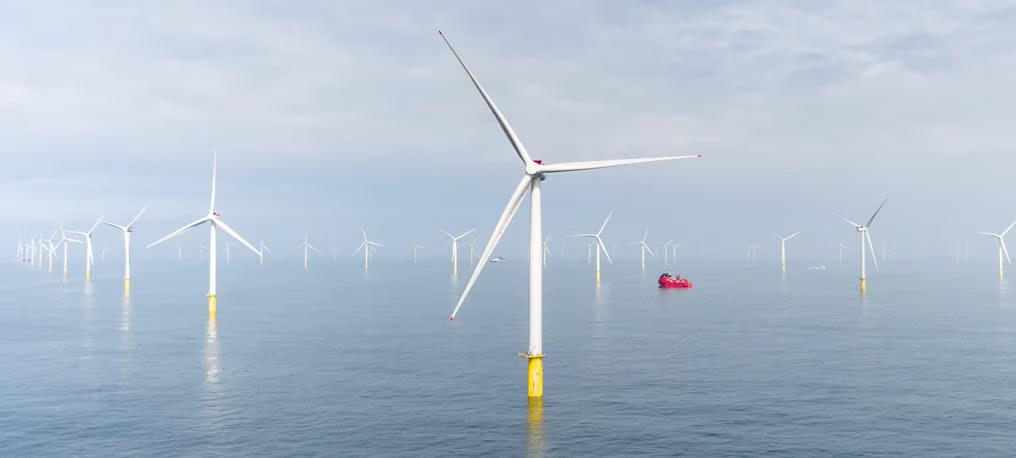It is part of the largest offshore wind farms in the world creating 2,000 construction jobs and more than 1,000 direct and indirect jobs during the operational phase.
Abu Dhabi Future Energy Company PJSC – Masdar, the UAE’s clean energy powerhouse, and RWE, a leading renewable energy company in Germany, have awarded global leading geo-data specialist, Fugro, a contract to undertake geotechnical surveys on the site of the Dogger Bank South (DBS) West offshore wind farm.
The Dogger Bank South wind farm – in the North Sea between the UK and Norway – is split across two separate sites, DBS East and DBS West, each with a capacity of 1.5 GW and spanning 500 square kilometers. It is expected to generate enough electricity to power three million typical UK homes.
It is part of the largest offshore wind farms in the world, it will lead to the creation of 2,000 jobs during construction and more than 1,000 direct and indirect jobs during the operational phase.
The Dogger Bank project in the shallow waters of the North Sea between the UK and Denmark, which had linked the UK to mainland Europe until it was flooded 8,000 years ago following a landslip in Norway and subsequent tsunami. It’s a three phase project across 500 sq kms and the UAE has a 49% stake in Dogger Bank South, to generate clean green electricity..
In Dogger Bank South, three vessels, Fugro Quest, Fugro Voyager and Normand Mermaid, will survey the ground conditions below seabed from May to October 2024 at the location of each proposed turbine and platform foundation, and associated seabed infrastructure.
Using a combination of surveying techniques, the ground investigation will be an extensive geotechnical campaign and is an essential step in determining the final design and engineering of the project.
The next development milestone for the projects will be the submission of applications for Development Consent Orders, expected to be during the second quarter of 2024. If successful, the next steps would be to secure Contracts for Difference (CfD), followed by financing, construction and finally commissioning by 2031.
Masdar is aiming for a renewable energy portfolio capacity of 100GW by 2030, supporting the target set in the historic UAE Consensus to triple global renewables capacity by the end of this decade, and aims to be a leading producer of green hydrogen by the same year.





